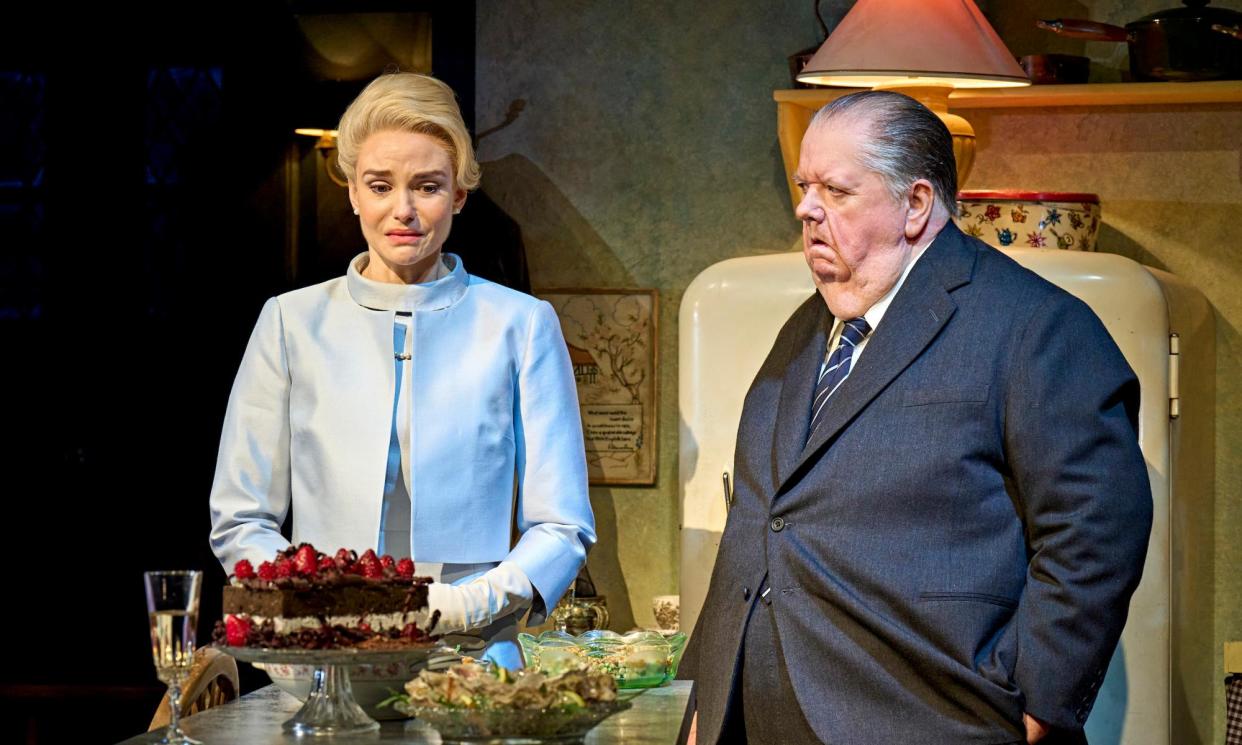Double Feature review – Hitchcock and Hedren meet the Witchfinder General

Two pairs of directors and actors zigzag on stage, talking across time and across each other. In each, one holds the power and the other attempts to wrest it. In 1960s Los Angeles, Alfred Hitchcock (Ian McNeice) is in an after-hours rehearsal for the film Marnie with Tippi Hedren (Joanna Vanderham), boasting of how he discovered her, controlling what she wears and commanding her into the bedroom. Alongside them, in a separate 60s bubble in a Suffolk cottage, is Vincent Price (Jonathan Hyde), instructing young director Michael Reeves (Rowan Polonski) to fall to his knees to beg him not to quit Witchfinder General, the film they are working on.
There is synchronicity in their respective power play but John Logan’s drama is out of sync as a whole despite some entertainingly punchy lines, albeit too many nudge-wink references. Theatre’s not real, says one character. Film is immortal but dead, says another.
Directed by Jonathan Kent, there is not nearly as much doing as saying, and it seems almost to come to a standstill as characters work out ideas in the script, rather than bloom into life. It might still have made for a brilliant verbal wrestling match if there was only more emotional underpinning and more intensity of focus in what it seeks to explore. The #MeToo themes of sexual predation and bullying are not done justice, and both stories are diluted by protracted discussions on the roles of the actor and director as well as displays of writerly insight into Hitchcock and Price’s oeuvres.
Plays about famous faces by their nature risk impersonation: McNeice looks the part but does not carry enough threat and Hyde is too campy, but Polonski does a better job of the hand-wringingly earnest and tormented Reeves. So does Vanderham as Hitchcock’s tense, enigmatic muse, dressed in a superb ice-blue suit.
But it amounts to less than the sum of its parts. The double nature of this feature is what distracts, one half undercutting the other. Both couples deserve space, and focus, for their own play.
• At Hampstead theatre, London, until 16 March


